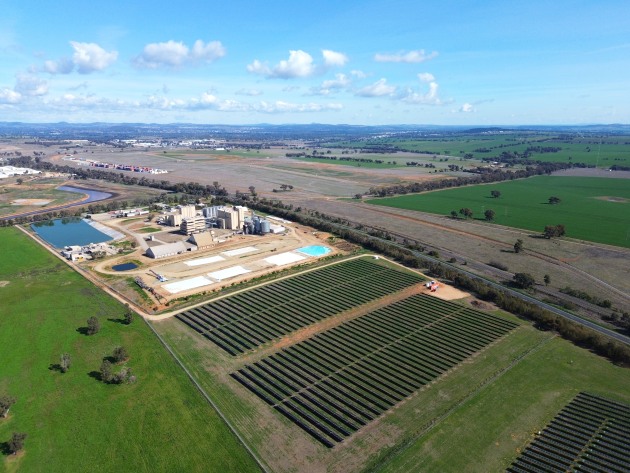Canola oil producer, Riverina Oils & Bio Energy (ROBE), has partnered with Australian renewable energy retailer, Flow Power, to power its operations with solar energy – a major step towards enhancing sustainability of its products.
Located in the agricultural hub of the Riverina region, in Bomen New South Wales, this new solar installation is Flow Power’s largest behind-the-meter project, which the company states is setting a new standard for renewable energy use in the manufacturing of Australian products.
Flow Power undertook the development, design, procurement and engagement of all major works contracts, and will continue to manage a retail agreement with ROBE.

Flow Power COO, Byron Serjeantson, said the Riverina Oils solar farm is a demonstration of how renewable energy projects are supporting Australian manufacturers to decarbonise, while better managing the energy costs and enhancing the value to their products.
“Flow Power has worked closely with the highly capable Riverina Oils team in delivering this excellent project. Riverina Oils should be commended for their industry-leadership and strategic vision in incorporating on-site solar in their transition to renewables,” said Serjeantson.
The Riverina Oils Energy Project powers its oilseed crushing and refining plant through solar energy during daylight hours. The plant, which has been operational since 2013, produces over 80,000 tonnes of high-quality refined vegetable oil annually for the food industry, and 120,000 tonnes of premium canola protein meal for the poultry, dairy and animal feed industry.
The solar installation is equipped with 2.8 megawatts of solar photovoltaic and a 2.6 megavolt ampere inverter, directly supplying power to the Riverina Oils plant through an underground 11 kilovolt cable.
With the Riverina region generating large volumes of biomass waste, such as nut shells, cotton trash, and grape marc, Riverina Oils is also exploring bioenergy solutions to progress towards a circular, sustainable production system.
Riverina Oils CEO, Andrew Jackson, said investing in solar power is not just an environmental choice, it's a strategic response to rising energy costs in manufacturing.
“Through our partnership with Flow Power, Riverina Oils has successfully reduced operational expenses, stabilised energy prices, and gained a competitive edge in a rapidly evolving market,” said Jackson.
“This project is also part of our overall commitment to a more sustainable business, including working with our growers and customers on sustainable supply chain solutions. There are complex challenges ahead for all industrial businesses and we continue to explore partnerships in sustainable systems that lead to a cleaner, safer future for all Australians.”






